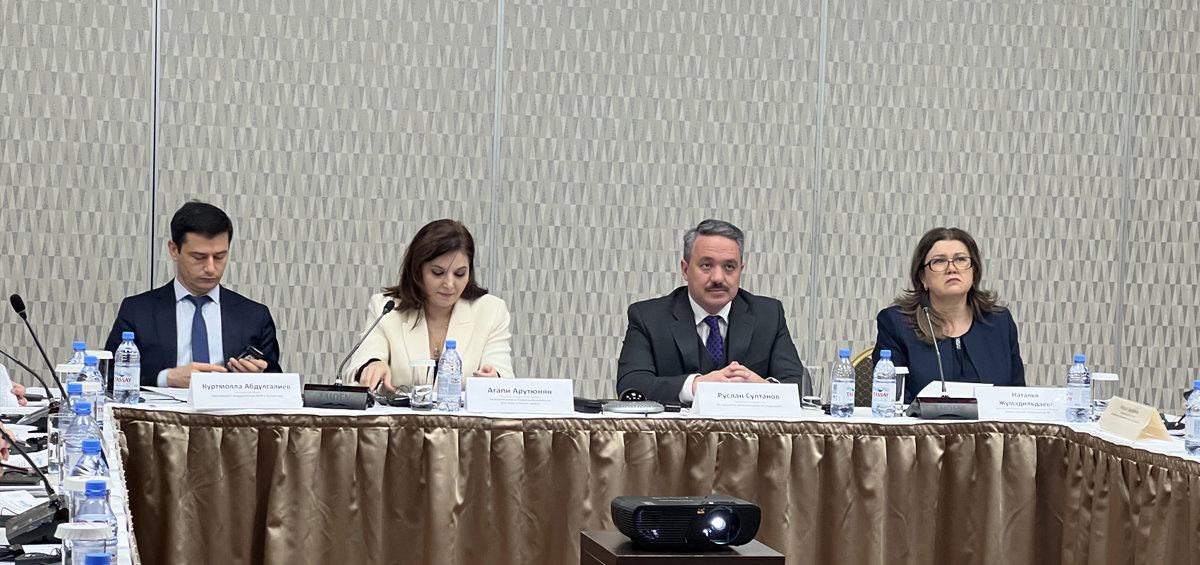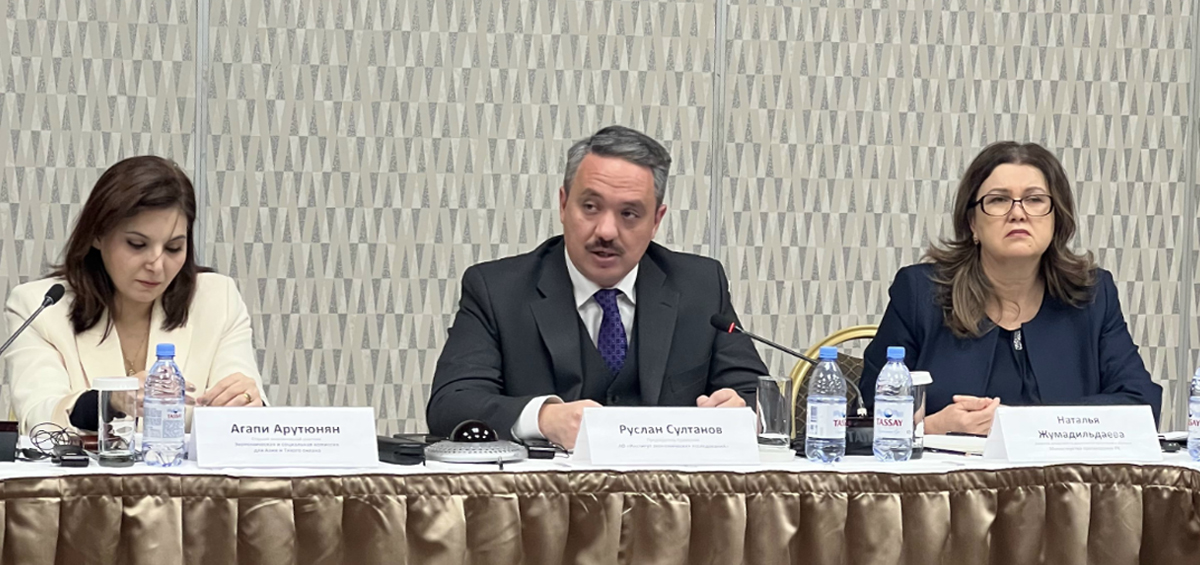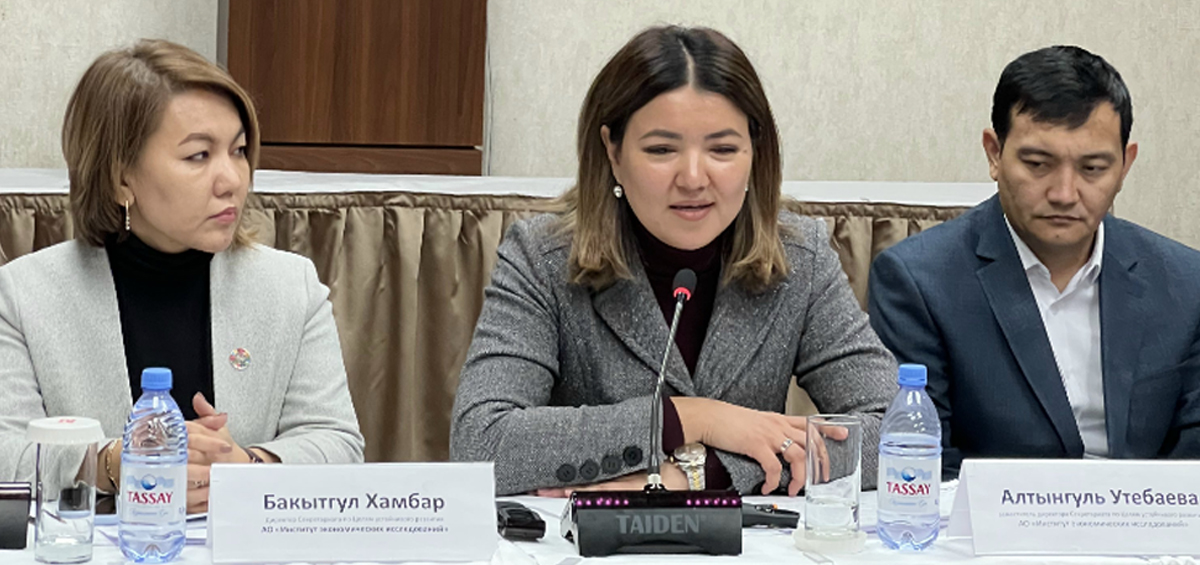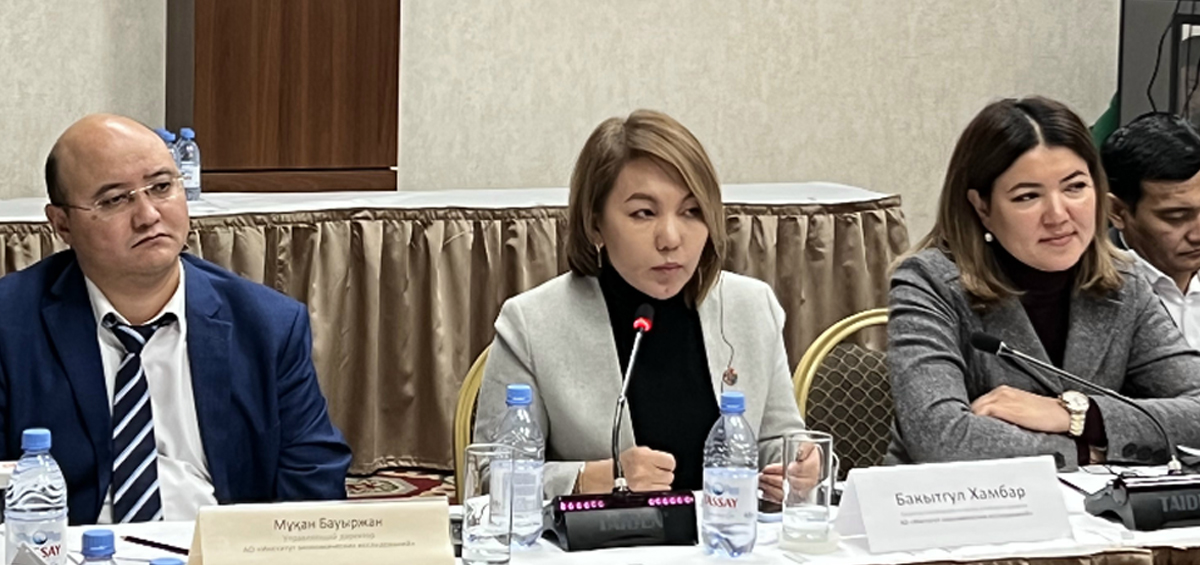ERI experts discuss the practicalities of a Preschool Costing Model
24.11.2022
On November 23, a workshop on calculation of need and development of Costing Model for Early Childhood Education took place in Astana. Results of the Costing Model for SDG 4.2 and practicalities of its application in Kazakhstan were presented. The event wa.organised by the Economic Research Institute JSC (ERI) in partnership with the United Nations Economic and Social Commission for Asia and the Pacific (ESCAP), with the participation of international experts from the UNICEF UNICEF Child Fund (Bangkok, Thailand).  Representatives of government agencies, private businesses, development institutions and international experts took part in the workshop, which was moderated by Aghapi Harutyunyan, Senior Economic Adviser, ESCAP. Subathiraj Sivakumaran, Chief of Division, Financing for Development Section, ESCAP, highlighted the support provided by the UN to participating countries for the implementation of education financing mechanisms. Nurgul Zhannazarova, Director of the Department of Social Policy and State Institutions Development of the MNE, reported on implementation of the commitments made to achieve the Sustainable Development Goals in the country: «The Coordinating Council on SDGs is functioning today; since this year the Council's chairmanship has been raised to the level of the Prime Minister; a legal framework has been formed; a list of national SDG indicators has been approved and work on their implementation in the SDG documents is in progress». Kurtmolla Abdulganiyev, Head of the UN Resident Coordinator's Office in Kazakhstan, noted the implementation of funding mechanisms in the country, including the CNMF (Comprehensive National Financing Facility) and the Child Wellbeing Index, one of the parameters of which is an assessment of the share of spending on children - child budget. Ruslan Sultanov, Chairman of the Board of ERI, stressed the need to provide children with quality pre-school education as the foundation of the education system and wished the audience an active discussion to develop a methodology for the implementation of the Model and its use in the future. «The model for calculation of preschool education costs, which is being developed based on the methodology of UNESCO, will be an alternative instrument for determination of sufficiency in financing of preschool education.».  Natalya Zhumadildayeva, Director of the Preschool Education and Training Department of the Ministry of Education of the Republic of Kazakhstan, noted the following: «There are currently almost 11,000 pre-schools in public and private ownership in the country. As a reminder, the main development boom in pre-school education began in 2010 with the construction of new pre-schoo.organizations, the return of previously privatized buildings and the development of PPPs. Currently, the Ministry of Education of Kazakhstan has developed a large roadmap to further reach preschool age children with pre-school education». Altyngul Utebayeva, Deputy Director of the ERI SDG Secretariat, in her presentation emphasised that quality education is the basis for sustainable development at all levels (social, environmental, economic). The number of children and women of child-bearing age is increasing every year and tools are needed to calculate sufficient funding for pre-school education.  Nyi Nyi Taung, UNESCO's programme specialist, presented the Costing Model of Preschool Education, which was developed for Kazakhstan, using UNESCO's methodology: «I highlight two approaches in financing pre-school education: budgetary and demographic. The presented costing model is based on demographic data. The calculation is based on the number of children who need to be enrolled in pre-school education. It is important to plan for the provision of preschool education for all children under 6-7 years of age, its adequate financing, and ensuring the quality of the education received». Masaya Noguchi, a UNESCO consultant, introduced the workshop participants to the calculations and the construction of the model, giving a calculation of the costs of pre-school education. The model takes into account the collection and systematisation of demographic data by gender and age and gives examples of how to assess the effectiveness of the results of implemented measures in pre-school education, using the model as a decision-making tool in policy implementation. Three scenarios are calculated and compared. Bakytgul Khambar, Director of the ERI SDG Secretariat, presented a draft roadmap for the implementation of the SDG 4.2 costing model and proposed to discuss the possibility of applying the model in the activities of public authorities.  Manara Adamova, Director of the Early Development Institute, made proposals on clarification of the parameters to be introduced into the model, noting the need to take into account force majeure circumstances, time limits and visibility of distribution of funds by regions. Gulssum Yegizbayeva, Director of the Astana branch of the Republican Association of Private Educational Organisations, highlighted 4 parameters to be taken into account - health, personnel, programmes and promotion, urging them to look at pre-school education and include as many factors affecting the upbringing and education of the younger generation as possible. There were lively discussions among invited guests - Tatiana Aderihina, Head of UNICEF Education Programme in Kazakhstan; Bakyt Altayeva, Head of Budget Policy Division at the Budget Policy Department of the Ministry of National Economy of the Republic of Kazakhstan; Kulyanda Batyrbekova, Vice-President of National Association of Investors to Education "BilimInvest" and others. During the seminar priorities and consistency of the implemented policy in the field of preschool education in Kazakhstan were outlined and issues that need to be addressed and further steps for the application of the model and its adaptation were discussed. As it is known, in general 82,6 billion tenge are foreseen for realization of measures within the national project "Qualitative education "Educated nation" for the period of 2021-2025. At the national level, public finances aimed at ensuring the availability of preschool education and training have been increasing since 2019, with expenditure of 135,129.5 thousand tenge, rising to 221,624.2 thousand tenge by the end of 2021. ERI analysis shows that at the regional level the largest share of expenditure is on the implementation of the state educational order in pre-school educationa.organizations - 65% in 2021. Provision of pre-school education and trainin.organizations accounts for 22% of the total expenditure planned for this purpose. At the district level, a similar structure is maintained. For note: UNESCAP is the United Nations Economic and Social Commission for Asia and the Pacific. Established by the United Nations Economic and Social Council and headquartered in Bangkok, Thailand. It is responsible for promoting economic and social development in Asia and the Pacific. UNESCO is the specialized agency of the United Nations Educational, Scientific and Cultural Organization. It is headquartered in Paris, France
Views: 6177 |
|
||||||||||||||||||||||||||||||||||||||||||||||||||||||||||||||||||||||||||||||||||||||||||||||||||||||||||||||||||||||||||||||||||||||||||||||||||||||||||||||||||||||||||||||||||||||||||||||||






|